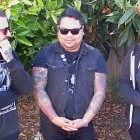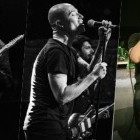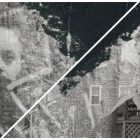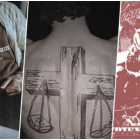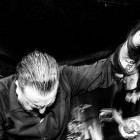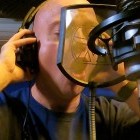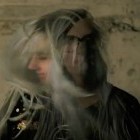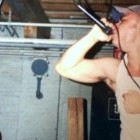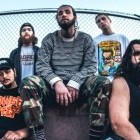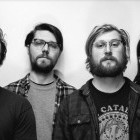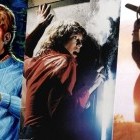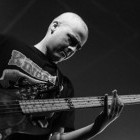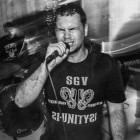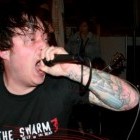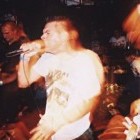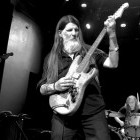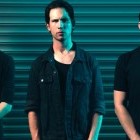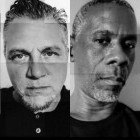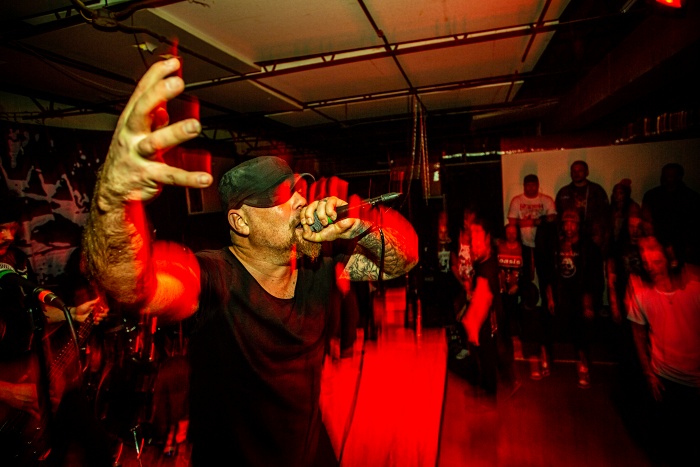
(The following interview appears in Issue #8 of Michael D. Thorn's excellent zine, Razorblades and Aspirin, which you can order the latest issue here. —Carlos Ramirez)
***
There’s a lot of references to the occult in Integrity’s work—in the lyrics, artwork, etc almost an obsession—I was doing a bit of research and saw that you are friends with Boyd Rice. How did you come to meet Boyd Rice? What first initially drew you to him?
I was at his house yesterday actually.
Oh really?
He lives in Denver, we had just played there... When I was growing up, my parents were very religious—obsessively religious and they would constantly scare me by dangling the punishment of hell over my head—fire and brimstone and such, and I started to wonder, “Is this real?”
At the same time, I started noticing that kids my age were appearing on milk cartons--there was this thing called the “Satanic Panic” where the media would say, “Satanic cults are doing this and Satanic cults are doing that...” Then also there was the PMRC which was—for peope who aren’t familiar or are too young to know what it is—that was a group of people, mostly housewives of politicians in Washington DC, who decided that it was their duty as Americans to censor music to only be music that they personally felt was acceptable and using the influence of their spouses to attain govement aid in enforcing their ideas—which is incredibly unconstitutional but they still were able to do it and that’s why we have the sticker that says “parental guidance--explicit lyrics” later as I ended yeah, and then the lyric, thing and all of that.
So I grew up with all of that type of thing, around me—I wanted to know what this “devil cult” is and where is it and if it’s real and is there a hell? All of these questions.
I started doing research and finding out about people who might know about cults and the esoteric... one of the people that I met was Boyd—he was writing in a lot of different books and magazines at the time about his philosophies and these mysteries… That’s how I met him, based off of researching death cults, satanic cults and end of the world cults... back then, he started out as an avant-garde artist and prankster, he sorta married both together quite well and he would use the pranking as a way of making people look at things from a different perspective. And some people don’t realize that that’s what he’s about. They see things a little bit too flat and one dimensional on a... and it’s not actually like “that.”
It serves its purpose because it creates a ripple; it creates an uncomfortable emotion for people.
I feel like late '70s, into the mid-'80s especially, there used to be this whole prank culture that was a big deal I think, my Frank Discussion from the Feederz—from the press release for their first show which local officials took to be a terrorist communiqué to firing an assault rifle loaded with blanks at their first show to the “Bored With School” campaign which caused him to be forced out of Arizona or face arrest… are you familiar with him?
No, not really…
You might find it interesting—my favorite thing he did was when they glued sandpaper to their debut LP sleeve so it would destroy everything around it… it’s sort of the same kind of thing Boyd does, pushing people’s buttons, trying to get you engage into a conversation that maybe they are not comfortable having…
Are you still just as interested in those dichotomies, between good and evil, the occult, so on so forth, as you were when the band first started?
I have a more handle on it now, it was more a curiosity and obsession--I guess my hobby, but I have a better understanding of how everything works now.
With the more recent there’s more general references to the devil, hell, etc. Is that a conscious shift away from a focus on a specific cult to a more general discussion of notions of evil?
I wouldn’t say that I see it that way. I guess maybe that’s just a perspective I don’t think there is much difference except for maybe that the language has expanded over the years to be more poetic… it’s really just all based on how I’m feeling at the time… sometimes it’s more abstract and sometimes it’s more clear cut and sometimes it’s a combination of both, and that’s a great part of what I do... it’s interpretive which allows the people who listen to the music to place themselves within the music, they can make it personal for them--their contribution gives them a sense of ownership to it, and also creates this different level that allows them to be a part of it…
I wanna shift a little and talk about Japanese punk—specifically Sakevi and GISM, would you say that he’s had an influence, on your artwork, music, stage persona, etc?
He was an influence for sure but I never saw what they looked like on stage, until the mid-'90s... though I wish that I had a flamethrower who doesn’t, right? The Detestation artwork was done by Randy Uchida, though.
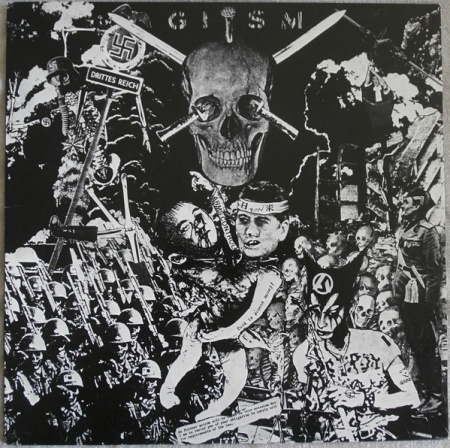
Really? I always thought that it was Sakevi…
Yeah—I love collage though—starting off with the Dada movement with Max Ernst, John Heartfield… Heartfield really was sort of like the blueprints of what punk was to become visually…
Yeah, I mean, Discharge used his image…
Discharge used a lot of Heartfield… the dove on the bayonet. You know that was very political artwork he designed at the time to counter the rise of the National Socialist Party in Germany. He was a German guy, an artist and he was using newspaper clippings and manipulating them to make a statement against this rising political movement that at the time he didn’t probably imagine just like American people didn’t imagine that a reality star would rise to be President…
Do you feel Integrity is more of an art project than a band?
It was always an art project. It’s about myself and what I’m interested in—I’m not gonna explain it to everybody to hold their hands, spell everything out to them because that’s boring. Do you really wanna read a review of a film that tells you the spoilers? Whats the point of that?
And at the same time, a lot of my understanding of how music is created came from my art school background came from my interest in collage, came from my interest in the Dada movement, my interest poetry collage, which we has referred to as cut up and commonly attributed to Brion Gysin and William H Burroughs but it actually started long before them with Tristan Tzara and André Breton—using the juxtaposition of words to create new perspectives, to trigger the synapses in your mind, causing them rewire you can understand and maybe make you feel a little more alive sometimes or maybe not. I don’t really approach it from a pretentious level like that.
I don’t really go around saying, “Oh this is art” with a beret on with a scarf and monocle. It’s just... That was my background, and that’s how I understand music…
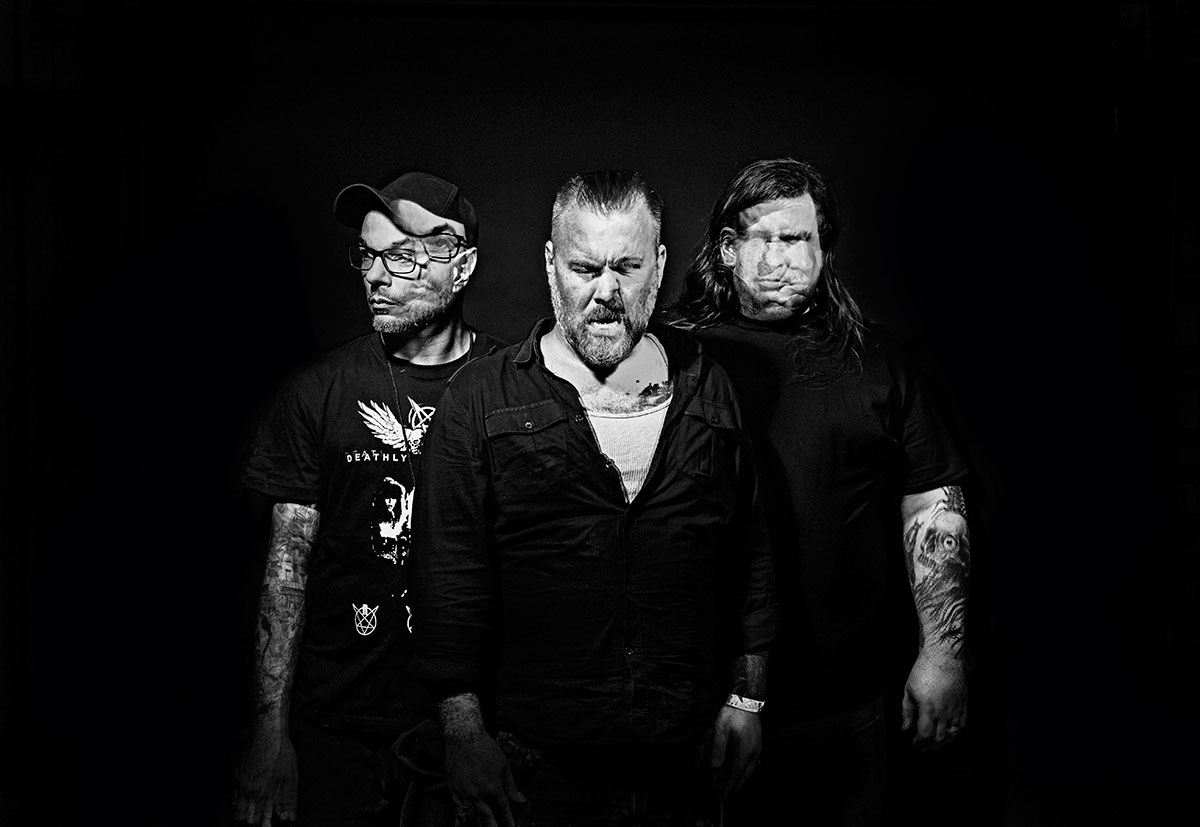
What is it about Dada that inspires what you are doing with Integrity as well as your own artwork? Is it just one of many things? The first among equals?
Just one of many… it’s gonna be the difficult continuance throughout this interview. You’re not gonna find one answer to any of this stuff, ‘cause there’s not one answer. Nobody is that… well hopefully no one is that black and white… I guess there are possibly people who are… I am made up of a great deal of influences and experiences.
How I filter that and process that ends up coming out through what I do. Some people can relate to it, many cannot and many despise what I do or don’t have any interest in what I do and I understand that--it’s expected and understood, and ever anticipated. As far as Dada being the main influence… I mean I would say that some of the tools that they used are very important to me. They basically waged war on art as art. So, take that how you want, but that was a big influence to me.
I’m also heavily influenced by Francis Bacon the painter but not just because of his painting but a lot more because of who he was as a man, about his perspective of the world and humanity.
There isn’t a really easy answer, to any of this stuff.
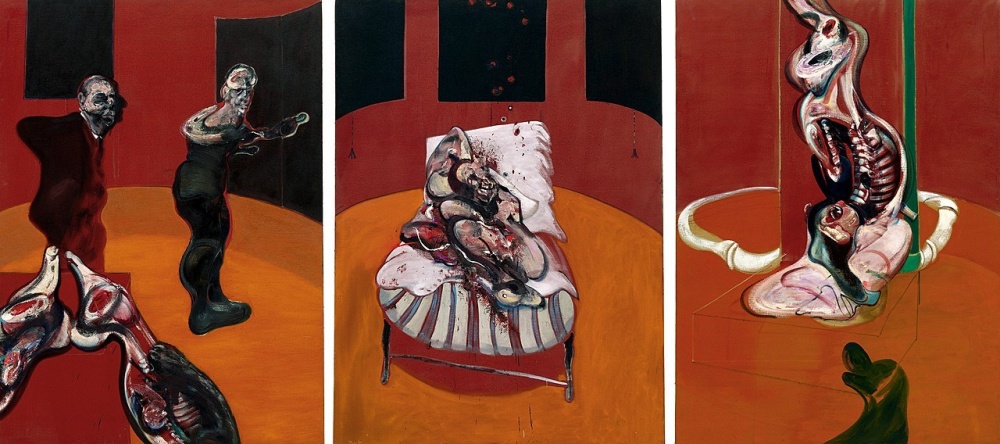
I like the notion of a war on art—how does that manifest in Integrity’s music/lyrics/artwork?
I like the idea of challenging the rules of what is expected. I have always felt aggressively at odds with the concept of being categorized within a specific genre or sub-genre. That uncomfortable feeling has led me to push the boundaries even further. Their imposed confinement only acts as a tool to push you to pursue new heights of experimentation and discard the imaginary boundaries. As for the second part of your question: There have always been critics and naysayers insisting that I can not write lyrics about a certain subject or in a certain style.
That I dare not make artwork look any other way than the a specific expected way because it is not accepted by the norm . . .that my music must always follow whatever the current fleeting trend may be at that given moment. A war is waged against those who oppress expression. Creativity was always intended to be free. Pushing boundaries always yields reward, conforming to others expectations always leaves me bored.
Tell me a bit more how you utilize poetry collage in your lyrics—can you provide an example of that in your own work? What about it interests you?
At this point it has become second nature. The juxtaposition of words that are often unlikely next to one another can create a special feeling. Here is an old example from about 30 years ago: “Hooked lung stolen breath cunt." How do those word in that order make you feel? How does it feel to say those words together outloud? Liberated? Embarrassed? Salacious? Words breed image. Image conjures sound. Sound corrupts perception.
You’ve done a lot work with soundscapes and noise—what was your first exposure to noise as an art form, what about it appeals to you?
At the start of my first album, Those Who Fear Tomorrow, that was released in 1991, I had the idea to emulate the vicious and volatile sound of Whitehouse. I had a low bass rumbling beneath a spoken word sample of the serial killer, Henry Lee Lucas threatening the world how he and many of his fellow 4P (Process Church) members were set out on a path to destroy the humans. That song would become my first released officially released noise track. Shortly after that I formed my side project, Psywarfare which has been my electronic noise project since.
I have always felt that Psywarfare aspired to emulate the sound of how someones conservative parent interprets heavy metal or punk music for the first time. That mocking sound that they make with their mouths that sounds like a chainsaw in a washing machine followed by absurd mock lyrics. I wanted to actually deliver to them their imagined nightmare of what our music sounds like and really turn it back against them. Allowing their fears to spawn the music that they hate. I love the freedom that noise affords, and I love that there is no expectation to measure against. It is pure expression without repercussion.
Have you considered doing a book or zine of your artwork?
I think of the inserts of records like that. The last full album that we did on Relapse came with a booklet and the insert for The Blackest Curse that came out on Deathwish was a rather thick insert booklet with images and lyrics... mostly images cooresponding to the songs… And maybe with the next one... they’ll be more artwork involved maybe a book, I don’t know.
Maybe on the other hand if I have too much artwork I’m opening myself up to being bootlegged so that’s could be a problem.
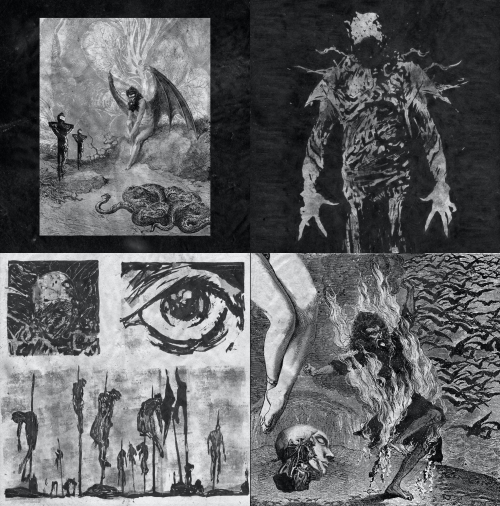
Any closing thoughts?
You know, I grew up in Indiana on a farm when I was six or seven years old, and I remember walking out into the back area, and looking and seeing corn fields on all the des, and thought that, as to more to the world in this.
So there is this aspect to what I do that I guess, is a pay-it-forward type thing.
I want to be able to interject a small piece, something small, into what I’m doing, where there is someone... Like out there who’s like that, who may not be in a corn field but maybe somewhere else, they’re just wanting to flex their creative muscles and nowadays it’s not so easy, I think, because things are a little bit too accessible to people and a little bit too convenient, too much hand-holding, letting people... This is how you do it, and people don’t have as much need for hustle, like a... while it’s great. And I use it as well, to go to YouTube and figure out how to repair my car or how to do some kind of weird form of printing or whatever it would be that I would be interested in doing.
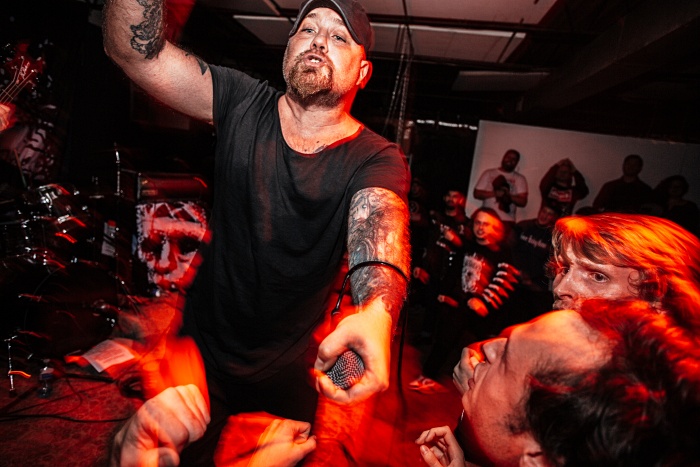
When I was younger I would just have to figure it out by trial and error, it doesn’t make it better, but the fact that I’d have to go through those steps that would strengthen my creative muscles and growing up on a farm without the internet, without even cable TV or even VHS tapes weren’t even invented at that point, so I would just basically sit there and draw and dream and create my own realities, and entertain myself that way.
And I would like to a small degree, to give a little bit of that back to the people who enjoy my records. And I think there are some people who appreciate that aspect of what the records offer at least I hope so.
Sometimes people tell me that they recognize that in the music and in the artwork and the lyrics.
I appreciate that they do, and then there’s other people who just say, “Let’s have a mosh part. I like to hit my friends.” And you can’t tell people that’s right or wrong, if it’s how they wanna interpret things.
I’m not here to set the rules but I like the idea that people can become more... A little bit more from experiencing something like this--or other things, not just what I do.
***
Donate a few bucks to help with No Echo's operating costs:
Tagged: integrity

